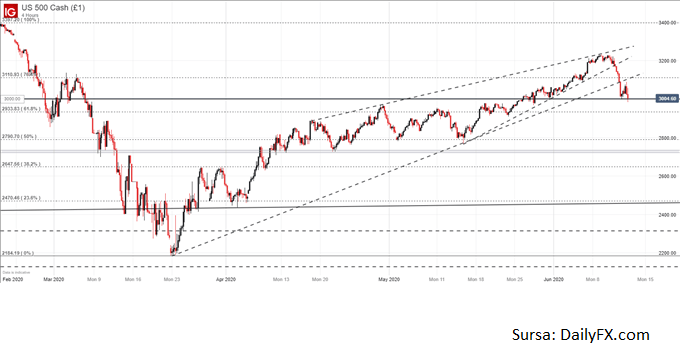The vernacular of those who deal in or broker investments cynically talks about “smart money” and “dumb money”. The former is managed by savvy professionals presumably able to take the best decisions regarding the amounts that they invest. Their choice of financial instruments is always substantiated, they correctly assess the return to risk ratio and spot opportunities before dumb money makers. The latter is rather in the hands of the common citizen, driven by mob mentality and get mobilized rather later than sooner during market peaks. It is smart money managers who most likely originated the saying: When the shoeshine boys talk stocks it is a great sell signal.
However, what we are now seeing on stock exchanges makes us wonder whether there is any difference left between the two categories and whether they may be both under the influence of mob actions alone. We are at the beginning of a deep recession, as the early signs indicate, consumer sentiment has collapsed as higher saving rates and a low interest in purchases show. Businesses are only now due to publish financial statements that will reflect the temporary economic shutdown and the US is confronted with significant social turmoil. And yet, despite all of the above, stock exchanges have spectacularly returned to almost pre-pandemic levels, and thus spell out an economic reality that basically isn’t there and is not likely to occur very soon.
 The explanation lies in the fact that people with money to invest have run out of options so they are inflating stock markets even more. Directly or indirectly, the richest 10% of Americans own 90% of stock wealth. Their money has traditionally been smart money being managed by professional managers or by themselves provided they had a solid background in finance that would allow them to take pertinent decisions.
The explanation lies in the fact that people with money to invest have run out of options so they are inflating stock markets even more. Directly or indirectly, the richest 10% of Americans own 90% of stock wealth. Their money has traditionally been smart money being managed by professional managers or by themselves provided they had a solid background in finance that would allow them to take pertinent decisions.
However, the way smart money currently behaves has yet to be convincing. Decoupling stock markets from economic facts seems to suggests that economic fundamentals no longer matter, and now go with the group to get rid of money and buy into financial assets, irrespective of how overvalued they are.
And if smart money is now governed by what the mob dictates, where does that leave dumb money? To be whole-heartedly invested in bankrupt companies…
A recent Financial Times article notices a series of anomalies showing that mob psychology remains difficult to explain and its implications should not be underestimated. Give the mob of small investors an accessible trading platform, and here are some of the deviations that you can expect. After Hertz, a car rental firm with $19 Bn in debt, had filed for bankruptcy protection, its shares went up 521% in just 5 days. Hertz capitalization has doubled compared to before filing for Chapter 11.
The retailer JC Penny also saw its stock rise by 195% in just one week, despite filing for bankruptcy protection on May 15. Whiting Petroleum stocks, a US gas&oil company, went up 328% in a week after filing for Chapter 11 in April. Again despite the fact that, after reorganization, its creditors will take control over 97% of shares. An insignificant detail…
To have a full picture of the absurd, Wall Street Journal announced the other day that a bankruptcy judge allowed the above-mentioned company, Hertz, to sell up to $1 billion in shares in what the newspaper called “a seemingly unprecedented move for a large bankrupt company eager to capitalize on market anomalies”. Throughout proceedings the Hertz lawyer mentioned that “the company’s shares might ultimately be worthless, although it’s impossible to know this as a point of certainty”, but as long as markets are made aware of the related risks, the move complies with all legal requirements.
The bad news for all these dare-devils is that Hertz bonds are sold at a significant discount compared to their nominal value which suggests that creditors’ chances to recover their money are slim. As bondholders prevail over shareholder in the distribution of proceeds, the latter will walk away with nothing.
Mob behavior seems to prevail over “smartness”. And in such times a spark is all it takes to trigger panic cross financial markets.
Have a nice weekend!



